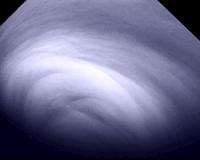 |
Washington DC (SPX) Dec 06, 2010 "I stood up, ran hard down the fully exposed starboard belly and jumped into space. Pearl Harbor closed over my head with five seconds to spare if my counting was correct before the next strafing. I broke through the oil slick and headed slowly toward a lifeboat bobbing gently on the surface. The world was over for the Utah." My uncle, Seaman 1st Class Don Green, wrote those words in describing his first-hand experiences after surviving the bombing of his ship, the USS Utah, at Pearl Harbor on December 7, 1941. On December 7, 2010, Japan's Akatsuki, the Venus Climate Orbiter, will enter orbit around the "morning star" - planet Venus. We at NASA are assisting with navigation and entry into orbit. Japanese scientists will share their data with us, and we'll work together in analyzing it. What a difference 70 years has made. Akatsuki is the Japanese word for "dawn," and truly represents the dawn of a new age of cooperation among nations through space science. This mission is but one example of the United States working with other space faring countries to explore the solar system, looking not at the past but to the future. We are delighted to have this opportunity to help the Japanese in even small ways to make the mission a success. And we look forward to all we can learn from it. Akatsuki is a great adventure to an enigmatic planet and could help us solve many of that planet's mysteries. For example, one Venusian day is equal to 243 Earth days, yet the clouds shrouding Venus zip by at incredible speeds. We want to know why. And why is Venus so different from Earth? Its thick atmosphere, mostly carbon dioxide, is laced with sulfuric acid. And Venus is drier than the hottest desert. Its surface is so hot it could melt lead. The terrain is strewn with craters and volcanic calderas. Are any of those volcanoes active? We'll find out. Akatsuki will look in new ways at a planet we have seen before. Each time we view a planet using new instruments and/or new techniques, it becomes a new world to us all over again. We make new discoveries about it and begin to understand it better. New worlds, new discoveries. Several years ago, my family and I went to Japan. It was a new world to us. My son, Scott, was 9 years old at the time and an avid comic book collector. In fact, he took several of his comic books with him on the trip in hopes of trading them for some Japanese comic books. He even learned Japanese phrases he'd need to make the transactions! One day we went to Hiroshima, and as we were crossing the bridge at Hiroshima ground zero, we met a group of Japanese school children coming from their tour of the museum. The children, dressed in white shirts and black pants and carrying black backpacks, marched four abreast. My son suddenly threw down his own back pack, pulled out his comic books, and went running into the middle of the marching children. A young boy in the group immediately set down his back pack and brought out his comic books for the trade. The youngsters were all smiles and excitement and good will as they swapped their treasures - sharing common interests. They were each making new discoveries about a world that was new and different to them. What a profound lesson for us all! And we follow suit with international partnerships in missions like the Venus Climate Orbiter. Science is a realm in which self interest and national interest give way to open exchange and to the nobler motivation of discovery. Science is the realm of human endeavor rooted in truth. It transcends geographic and political boundaries. And it transcends the past. Space is a new frontier for all of us - new to the Japanese, new to us, new to all nations on Earth. We all look outward at the solar system together, from the top of a symbolic bridge where we "swap comic books," sharing our unique perspectives on the new worlds we explore. It's a bridge where we combine, for the good of all humankind, the truths we discover. A bridge where we look not at the past, but to the future. The morning star awaits.
Share This Article With Planet Earth
Related Links - Venus Express News and Venusian Science
 Venus Holds Warning For Earth
Venus Holds Warning For EarthParis, France (ESA) Dec 01, 2010 A mysterious high-altitude layer of sulphur dioxide discovered by ESA's Venus Express has been explained. As well as telling us more about Venus, it could be a warning against injecting our atmosphere with sulphur droplets to mitigate climate change. Venus is blanketed in sulphuric acid clouds that block our view of the surface. The clouds form at altitudes of 50-70 km when sulphur dioxide ... read more |
|
| The content herein, unless otherwise known to be public domain, are Copyright 1995-2010 - SpaceDaily. AFP and UPI Wire Stories are copyright Agence France-Presse and United Press International. ESA Portal Reports are copyright European Space Agency. All NASA sourced material is public domain. Additional copyrights may apply in whole or part to other bona fide parties. Advertising does not imply endorsement,agreement or approval of any opinions, statements or information provided by SpaceDaily on any Web page published or hosted by SpaceDaily. Privacy Statement |